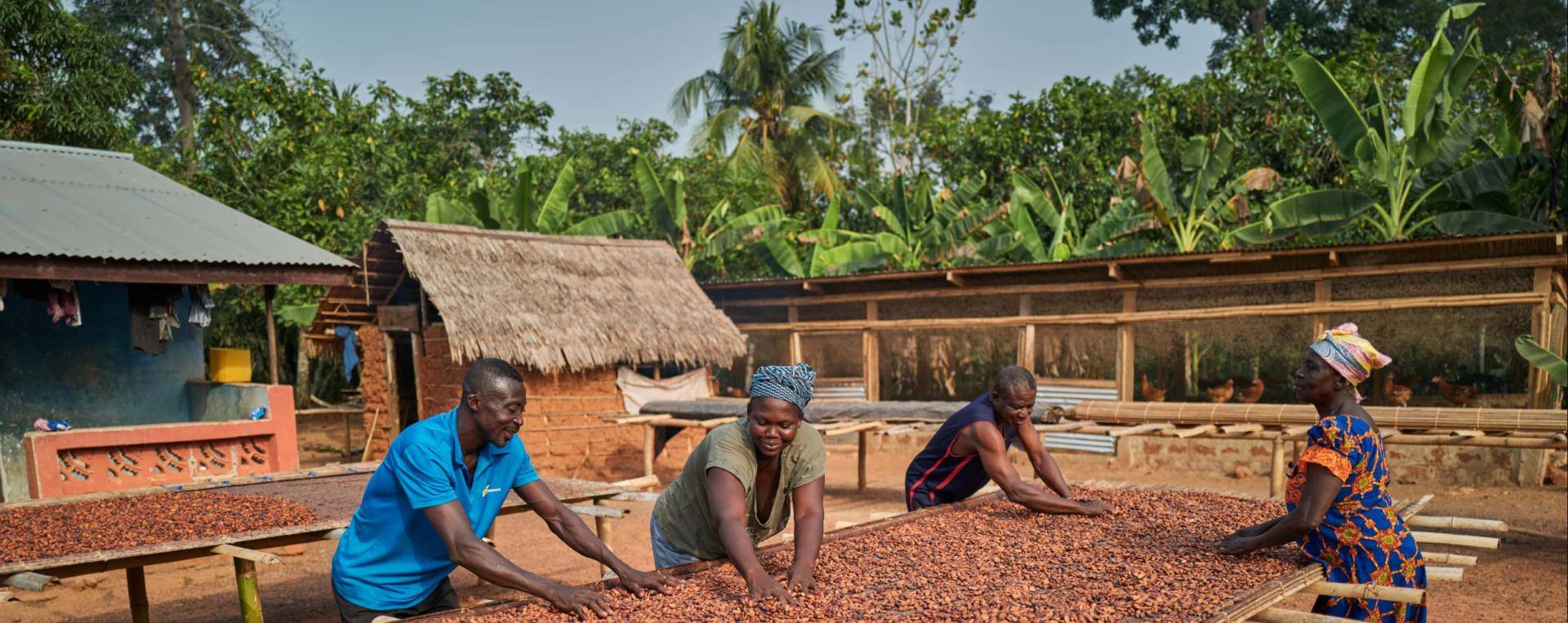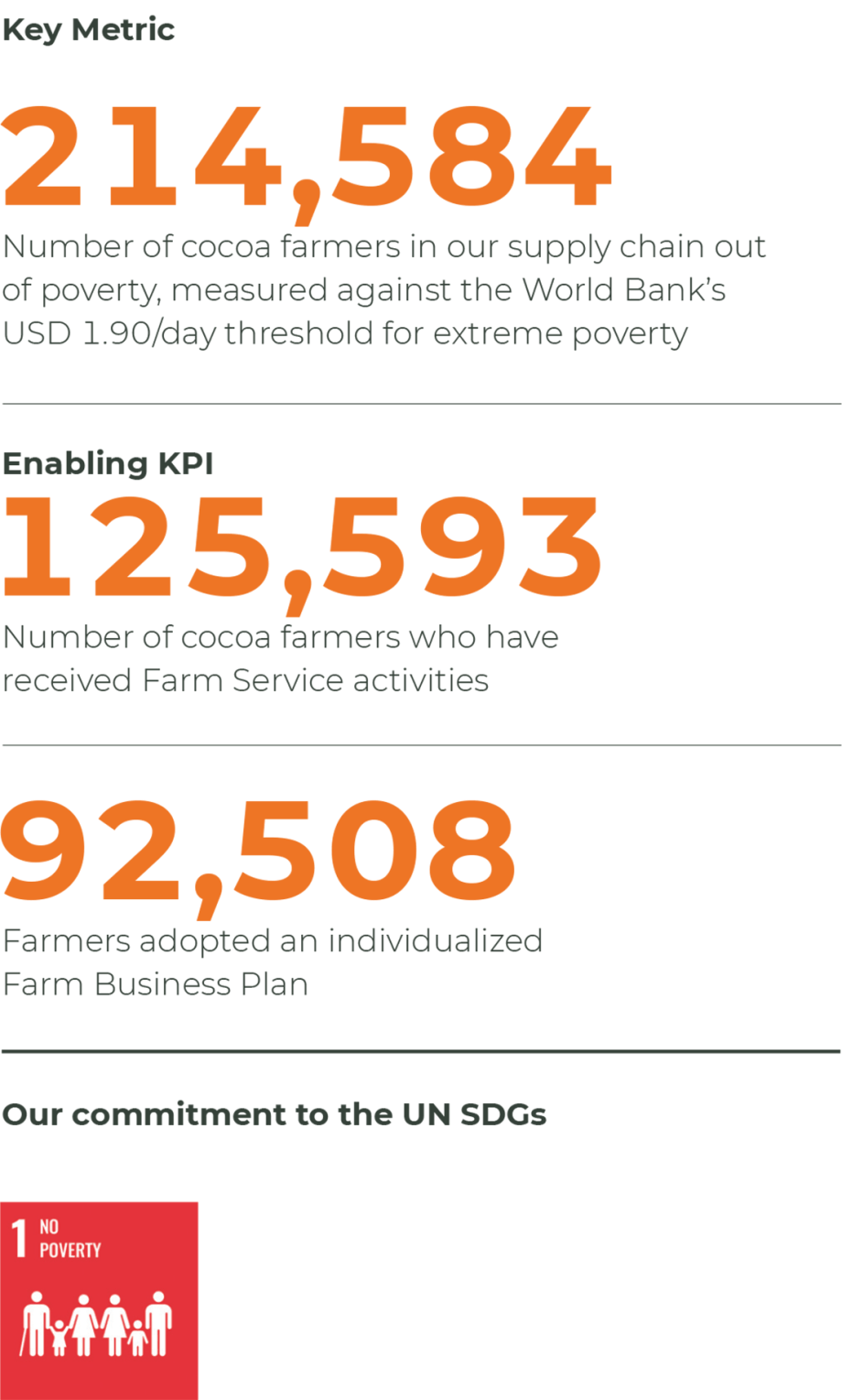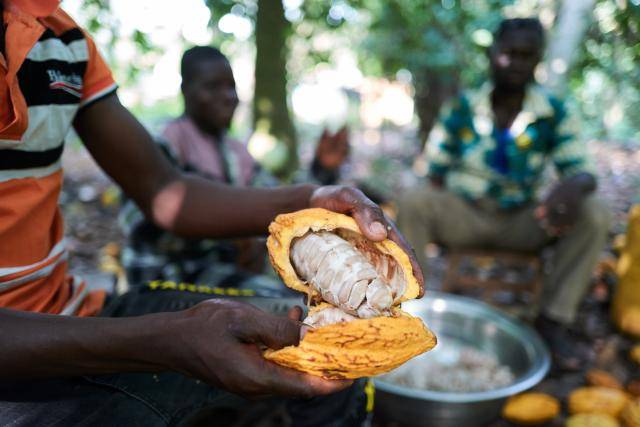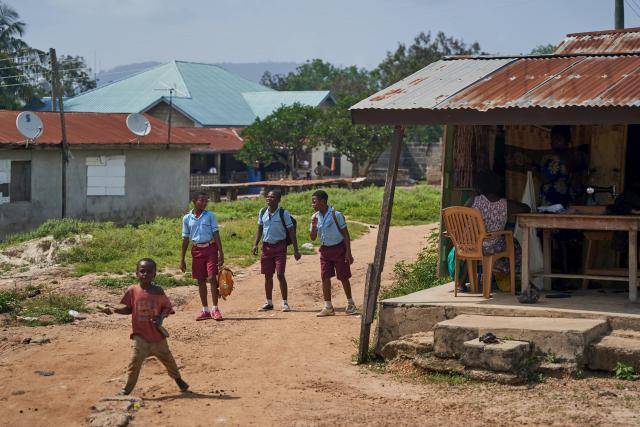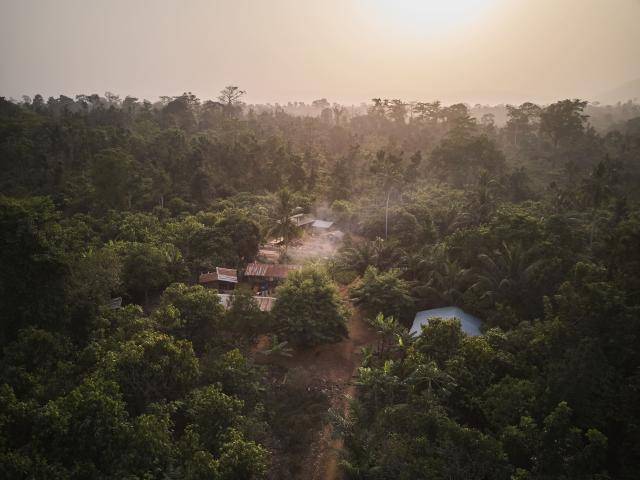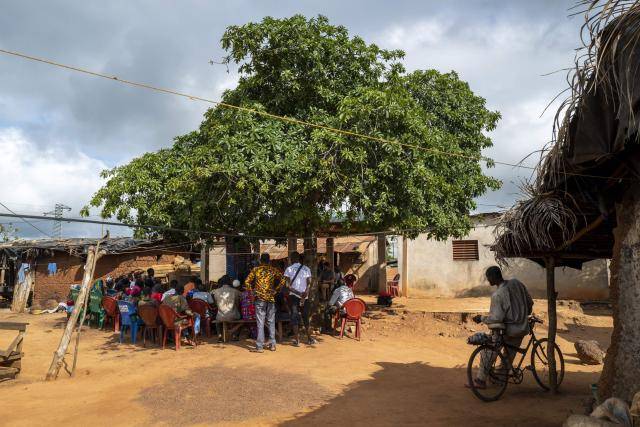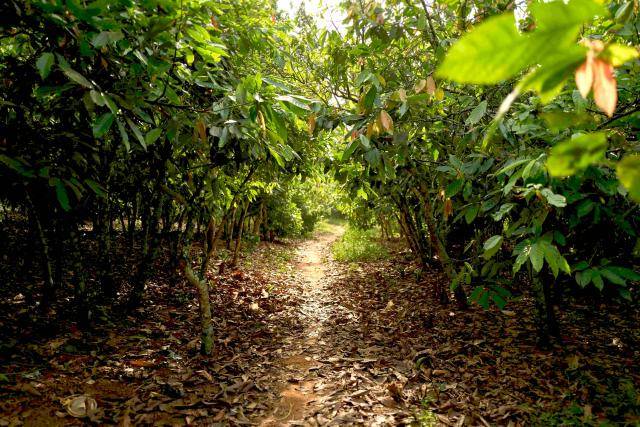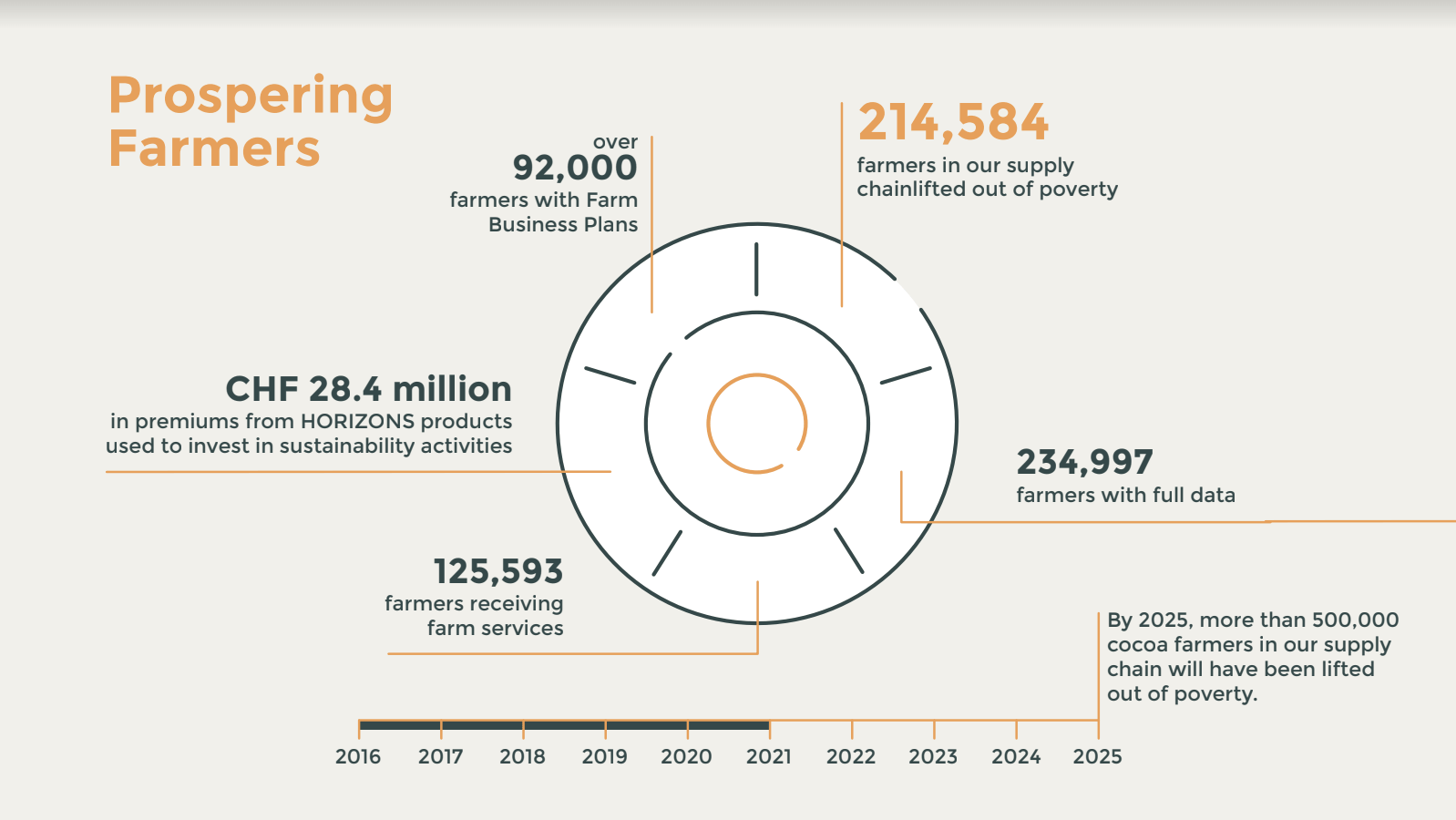

Our approach
Almost two-thirds of global cocoa is produced by Côte d’Ivoire and Ghana. In Côte d’Ivoire, 70% to 85% of cocoa farmers’ income is dependent on cocoa1 and in Ghana, cocoa is estimated to account for about two thirds of cocoa farmers’ revenue2. Low productivity on cocoa farms as a result of poor agricultural practices, nutrient-depleted soils and aging cocoa trees keeps cocoa farmers and their families in a cycle of poverty. In addition, cocoa farmers are confronted with an underdeveloped rural infrastructure that limits their access to universal basic services, such as access to water, sanitation facilities, lack of road infrastructure and transport network, low-quality or inaccessible medical services and school education.
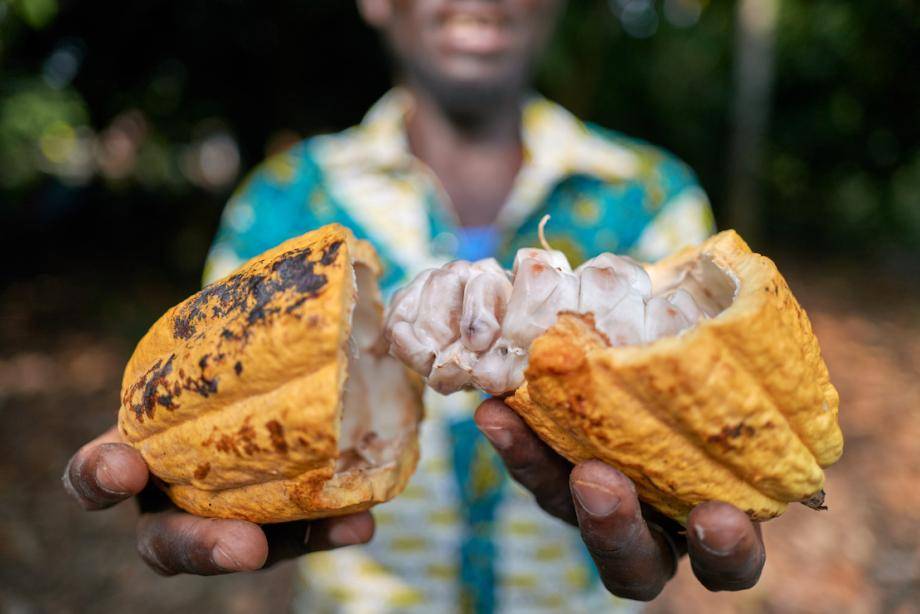
A fully sustainable cocoa sector cannot be done by one actor, alone. This can only be achieved through a broad-based movement with all players in the cocoa sector – NGOs, industry, governments and other stakeholders.
For cocoa-producing countries, further support should be given to rural infrastructure development, land registration and farmer database systems, which would allow for a more tailored approach to interventions on farmer professionalization and the promotion of additional income-generating activities.
At industry level, we believe that implementation of projects to increase farm productivity through farmer training, better access to agricultural inputs, improved planting materials and credit for investment, should be continued in order to support farmer professionalization. For cocoa-importing countries and regions, such as the EU, there are several complementary actions that are needed to support a sector-wide change: Due diligence and deforestation legislation, which would tackle unsustainable practices and help cocoa farmers achieve a living income, needs to be coupled with partnership cooperation with origin countries, in order to be fully effective.
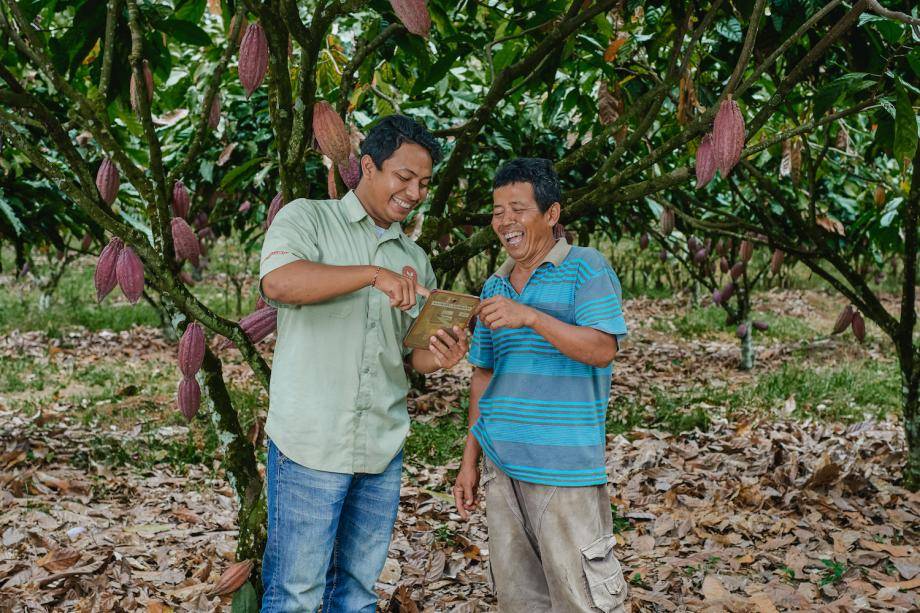
Productivity packages are a combination of product offerings, such as planting material to boost soil fertility, and on-farm training in good agricultural practices.
As we progress towards our 2025 target of lifting more than 500,000 farmers in our supply chain out of poverty, our focus is to continue supporting farmers by modernizing agriculture and cultivation methods, increasing yields, diversifying income and professionalizing farming. Our individualized Farm Business Plans (FBPs) constitute a 10-year-model of the potential income a specific farm can generate if managed optimally. Supporting farmers with the appropriate offering is the key cornerstone of our multi-year FBPs, which present the farmers with a journey out of poverty based on their individual situation and farm profile. These plans are created through one-to-one consultations between our Farm Services specialists and the farmer, and involves an evaluation of the farm landscape – soil analysis, age of cocoa trees, presence of alternative crops and livestock, as well as categorization of the agricultural skills which the farmer already possesses.
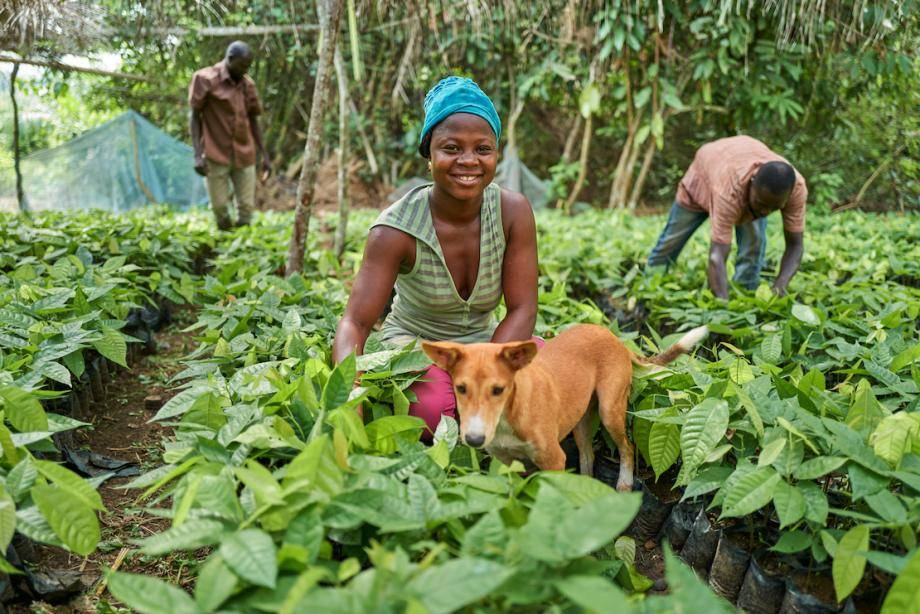
In 2020/21, we scaled up the capacity of our nursery production facilities in Côte d’Ivoire, Ghana, Cameroon, Brazil, Ecuador and Indonesia
The uniqueness of our approach is the support and training we provide at individual farm level. We have found that coaching on-farm, paired with technical advice that relates specifically to each farm's needs, is the most effective method of supporting farmers in implementing skills they learn during training. Following farm diagnostics, skills analysis and data collection, we provide three types of services to support cocoa farmers – productivity packages, seedling distribution and income diversification packages.
Our measured impact by 2020/21
For the measurement of the progress against our target to lift over 500,000 cocoa farmers out of poverty by 2025, we are using as a starting point the International Poverty Line definition of extreme poverty of USD 1.90/day adjusted for purchasing power and cost of living in Côte d'Ivoire, Ghana, Cameroon, Indonesia and Brazil[1]. This threshold is the first stage. Our activities are designed to help farmers move from subsistence to living incomes through increased productivity and income diversification. In 2020/21, measured against the International Poverty Line threshold of USD 1.90/day, we estimate 214,584 cocoa farmers (+49%) in our supply chain are no longer in poverty. This year, 125,593 (+75%) farmers in Côte d'Ivoire, Ghana, Cameroon, Brazil, Indonesia and Ecuador had access to farm services, aimed at improving agricultural methods, increasing yields, diversifying income, and upgrading farming practices. In addition, we scaled up the capacity of our nursery production facilities in Côte d’Ivoire, Ghana, Cameroon, Brazil, Ecuador and Indonesia. This has resulted in the distribution of almost 2.7 million (+24%) cocoa seedlings and almost 2 million (+49%) non-cocoa trees.
1 Pluess, J. (November 2018), Children’s Rights in the Cocoa-Growing Communities of Côte d’Ivoire, Abidjan: UNICEF Côte d’Ivoire. Available from: Unicef.org (accessed August 5, 2021).
2 Cocoa Farmers in Ghana experience poverty and economic vulnerability (2017). Available from cocoainitiative.org (accessed August 2, 2021).
3 World Bank Data Hub. Available from https://datahelpdesk.worldbank.org/
